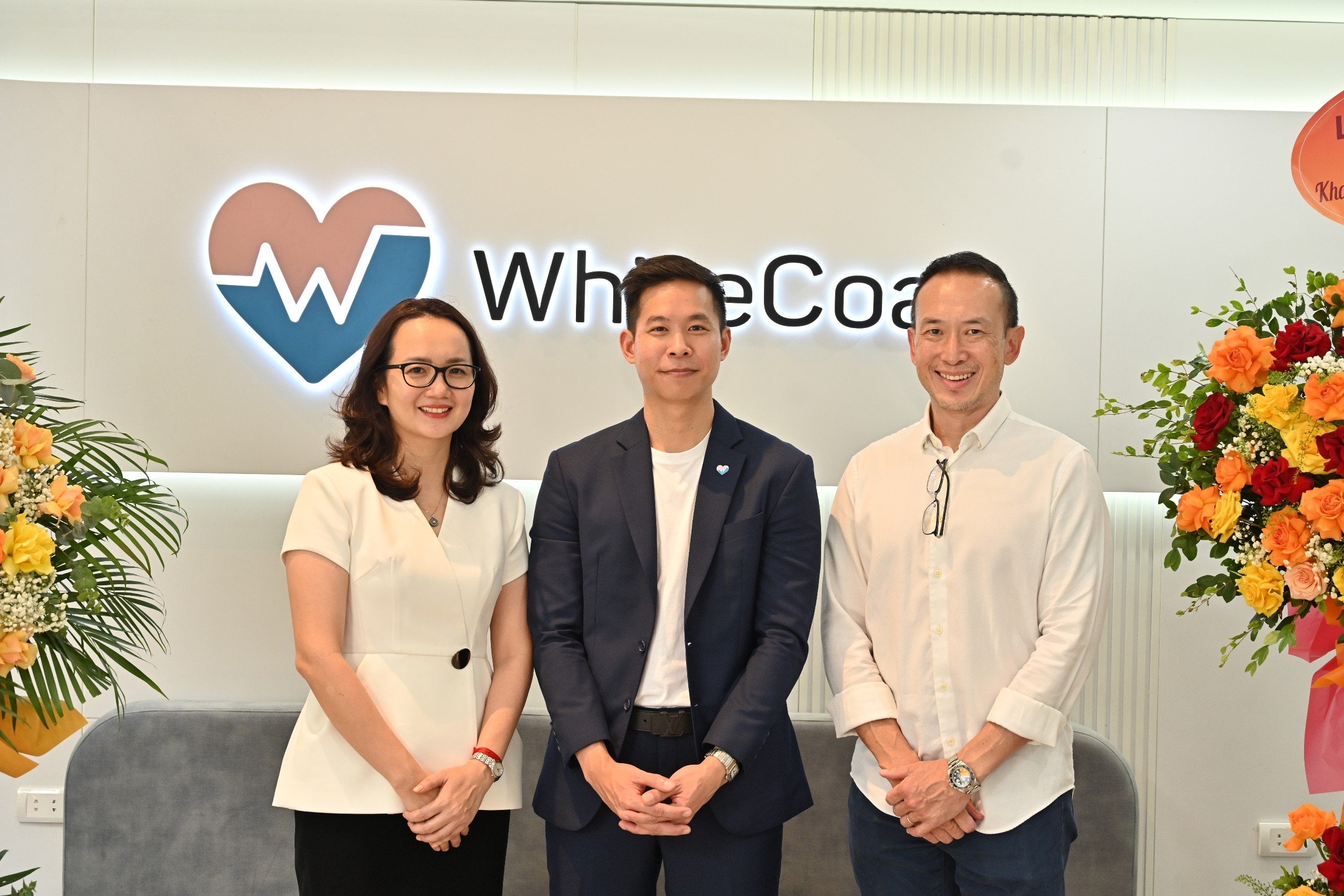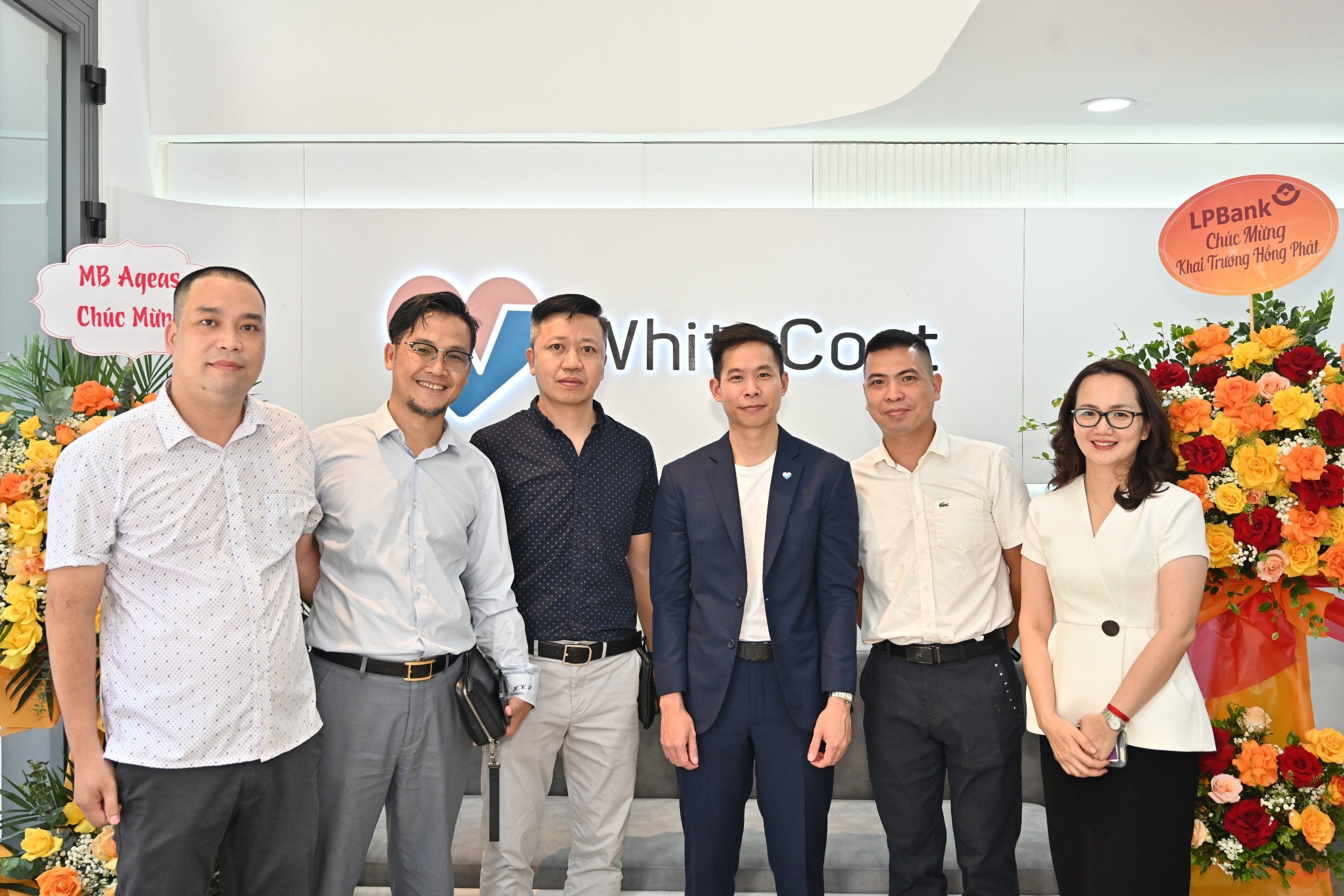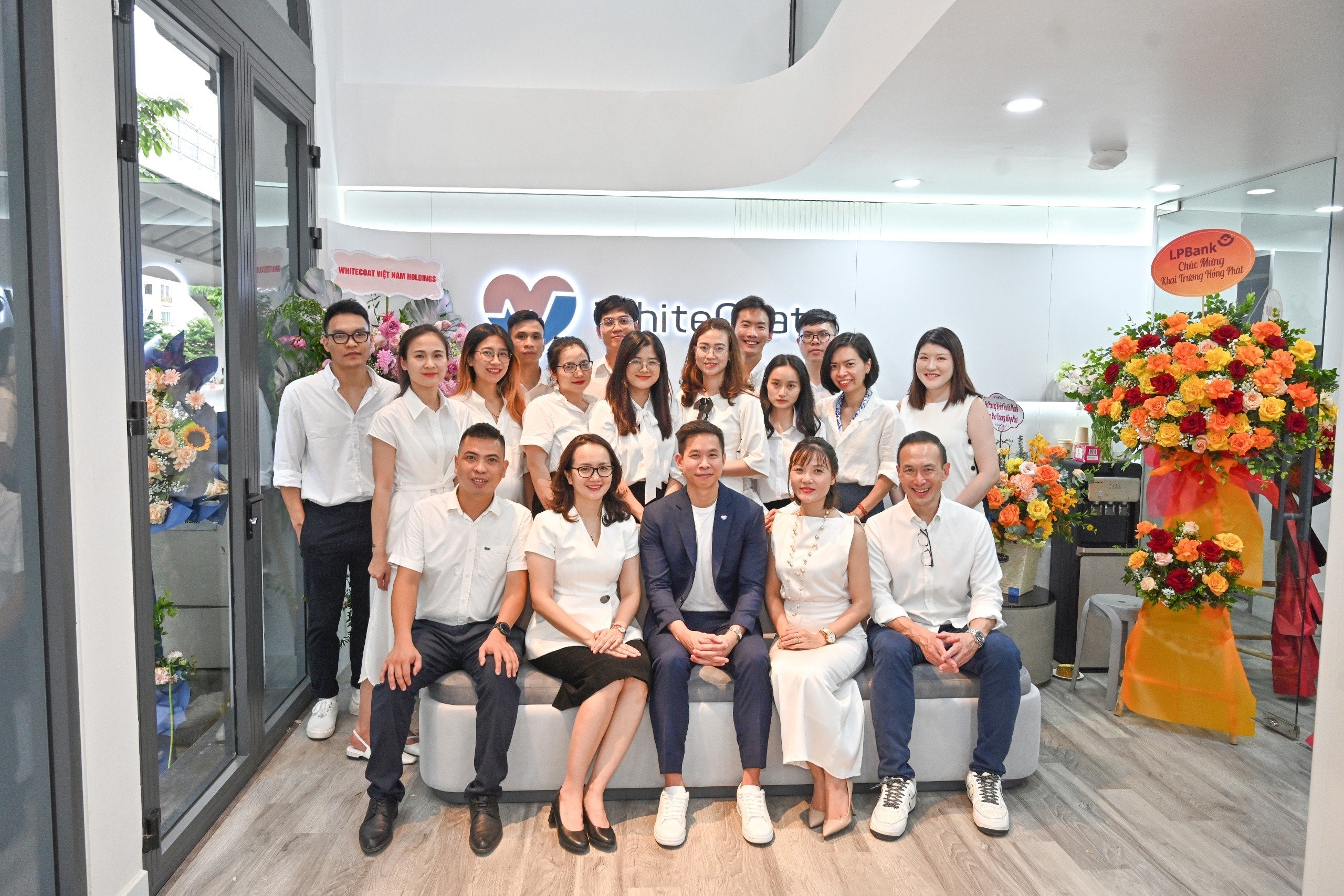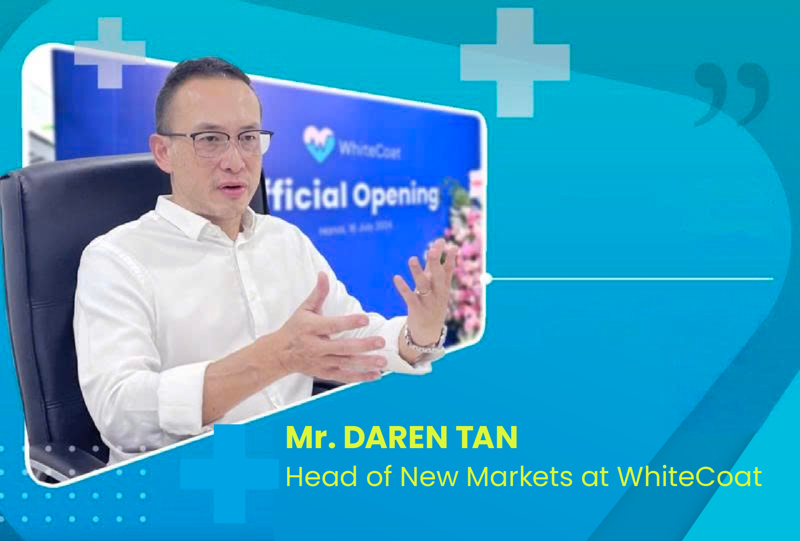As a well-known digital healthcare enterprise based in Singapore, can you tell us about WhiteCoat’s founding and its achievements in its home market after five years of operations?
WhiteCoat was founded in 2018 by our CEO and Founder, Mr. Bryan Koh, and his sister, Dr. Natalie Koh. WhiteCoat started out with the goal of transforming how people access healthcare, by offering a digital platform that connects patients with healthcare professionals for virtual consultations, reducing the need for physical visits and long waiting times. This approach not only enhances patient convenience but also optimizes the use of medical resources.
Over the past five years, WhiteCoat has evolved in terms of our services and approach, but we have never deviated from our aim of improving the patient experience and quality of care. Through continuous innovation and improvement, WhiteCoat has achieved several significant milestones in the Singapore market:
- Achieving Break-Even: We reached a financial break-even point, demonstrating the viability and sustainability of our business model.
- Expansion of Services: We have evolved beyond virtual consultations to include a comprehensive suite of services such as mental health services, specialist consultations, health screenings, and home-based care, making us a holistic healthcare provider.
- Partnerships: Our strategic partnerships, such as with AIA, have been pivotal in expanding our reach and allowing us to provide care for hundreds of thousands of users.
- User Base Growth: We have seen exponential growth in our user base, reflecting the trust and confidence that patients have in our platform. Even after Covid-19 ended, user engagement and usage of the app have remained high.
- Funding and Investment: We recently closed a tranche of our Series B funding round, securing additional capital to fuel our expansion plans and further develop our technological capabilities. We are also seeking fresh funding to accelerate our regional expansion and introduce new services like the Regional Health Passport, which will enable seamless cross-border healthcare access for our users.
- Headquarters Establishment: Recently, we established our new headquarters in Singapore as part of our post-Covid expansion plans, reinforcing our commitment to being a key player in the regional healthcare landscape.

Though WhiteCoat has become one of the most popular telehealth applications in Singapore, its utilization rate in Vietnam remains modest. What is the main cause of such a difference?
I believe there are several factors that contribute to the sustainable adoption of telemedicine.
The first is that there must be payer support. When we first started out in Singapore in 2018, we realized that it would be hard to be sustainable in the B2C market, where customer acquisition costs are high. This was also similar in Southeast Asia, where users tended to drop off and retention rates were poor once discounts were removed.
As a result, we began focusing on forging partnerships with insurers and corporates very early on in Singapore, where we worked to be their partner of choice by curating, with them, digital services that catered to their needs as well as that of their user bases. To the end user, the assurance that their medical bills are covered by the insurers and their employers encouraged them to seek medical help promptly. So, support from payers is important.
But partnerships with payers alone are not sufficient, and this leads me to my second point - building awareness. Users need to know of the service and its benefits before they can try it out. This was where we spent significant effort, working together with our payer partners, to build awareness of our service. We showed users how accessible healthcare can become through WhiteCoat, and how we can manage their health and wellness conditions in an accessible and affordable way, where users only need to pay what is not covered under their policies, given our straight-through claims processing capabilities.
The third point is to ensure that quality medical care is provided to build user confidence in this pillar of care. Going back again to when we first started in 2018, we actually had “users” who would teleconsult just to see if they would be speaking to a real doctor. They were shocked when they realized that indeed, behind that video call, was a certified medical practitioner. In those early years as well, telemedicine was not regulated by the Singaporean Government, but we approached the Ministry of Health and kick-started discussions with them on introducing telemedicine regulations. The Ministry then started a regulatory sandbox for telemedicine, where the government worked with industry players like us to explore the introduction of regulations specific to the sector. This paved the way for regulations to be introduced sector-wide last year.
Over the years, the introduction of the regulatory sandbox, followed by formal regulations and the efforts made by industry players to provide quality services, has helped build confidence in telemedicine in Singapore.
In Vietnam, we are starting to see these factors emerge. We now see payers who are keen to support and cover telemedicine services. We also see a gradual rise in awareness of such services and how firms like ours provide accessible, affordable, and quality care through our omni-channel health and wellness offerings. Importantly, the government is supportive and has been building up regulations in the area of telemedicine.
In the time to come, we believe that telemedicine usage will rise in Vietnam.

Vietnam’s healthcare market is considered attractive to many investors, as evidenced by many joining the race and providing teleconsultation models similar to WhiteCoat’s services. What differentiates WhiteCoat from its competitors in the market?
Vietnam’s healthcare market does indeed present a promising opportunity, and we are excited to bring our services to this vibrant market. What sets us apart from other teleconsultation providers are several key differentiators:
- Comprehensive Ecosystem: WhiteCoat offers a complete digital healthcare ecosystem that goes beyond teleconsultations. Our platform integrates services such as medication delivery, laboratory test bookings, health screenings, chronic disease management, mental health services, and preventive care packages, providing a seamless and holistic healthcare experience for our users.
- Quality of Care: We prioritize the quality of care by ensuring that our network of healthcare professionals is highly qualified and adheres to stringent standards of practice. This commitment to quality has earned us the trust and confidence of our patients.
- Technology and Innovation: We continuously invest in cutting-edge technology to enhance our platform’s capabilities. This includes features such as personalized health management plans, seamless access to medical records, and a user-friendly interface to ensure a smooth patient experience.
- Strategic Partnerships: Our partnerships with leading organizations, such as LPBank, allow us to offer integrated and affordable healthcare solutions, making it easier for patients to access the care they need.
- Regional Health Passport: One of our innovative offerings is the Regional Health Passport, which enables users to access their health records and seamlessly receive care across different countries. This feature is particularly valuable for expatriates and frequent travelers.
By focusing on these areas, WhiteCoat aims to deliver exceptional value and a superior healthcare experience to the Vietnamese market, setting us apart from the competition.

One of WhiteCoat’s core values is Sustainability. Could you please elaborate on this value in the context of WhiteCoat’s service development direction?
Sustainability is a core value at WhiteCoat, and it influences every aspect of our operations and service development.
Healthcare is inherently a long-term commitment. When it comes to our patients, we understand that their health journeys can span years, if not decades. Therefore, our service development is focused on creating sustainable, long-term healthcare solutions that evolve with our patients’ needs. This includes chronic disease management, mental health services, and preventive care packages, which are designed to provide continuous support and care over time.
WhiteCoat is a family-owned business, and we aim to be a long-term healthcare player in the market for the next 20-30 years. Unlike many companies that might aim for a quick exit or public listing, our decisions are driven by a vision of long-term sustainability. This means that every strategic decision we make is carefully considered for its long-term impact on our business and the communities we serve.
We believe in forming partnerships that are mutually beneficial and sustainable. Our collaborations with insurance providers like AIA are built on this principle. By ensuring that our partnerships are win-win, we create a stable and supportive network that benefits all parties involved, and most importantly our patients. This approach ensures that our services remain accessible, affordable, and of high quality.
While our primary focus is on healthcare, we are also mindful of our environmental impact. We leverage digital technology to reduce the need for physical resources and minimize our carbon footprint. For example, virtual consultations reduce the necessity for travel, thereby lowering emissions. Additionally, our digital health records and prescriptions reduce paper usage.
By focusing on these areas, we aim to ensure that WhiteCoat remains a trusted, reliable, and sustainable healthcare provider for many years to come. Our commitment to sustainability helps us build a healthcare ecosystem that can adapt and thrive, benefiting both our patients and the broader community.
Could you tell us about WhiteCoat’s direction in Vietnam over the next 2-3 years, especially regarding core services to be developed and its targeted customers? If development is favorable, what would be the future vision for WhiteCoat in Vietnam?
Our overarching goal at WhiteCoat in every market is to be the leading omni-channel healthcare provider, delivering quality care to all users. Specifically in the Vietnamese market, drawing on our extensive healthcare expertise, we aim to establish a medical ecosystem that leverages technology to offer a seamless healthcare experience. This includes personalized proactive healthcare programs complemented by digital tools to enhance user engagement, alongside accessible in-person services where necessary.
Our goal is to cultivate trust among the Vietnamese community in WhiteCoat’s remote medical consultation services, while actively supporting Vietnam’s healthcare digitalization initiatives led by the country’s Ministry of Health.









 Google translate
Google translate